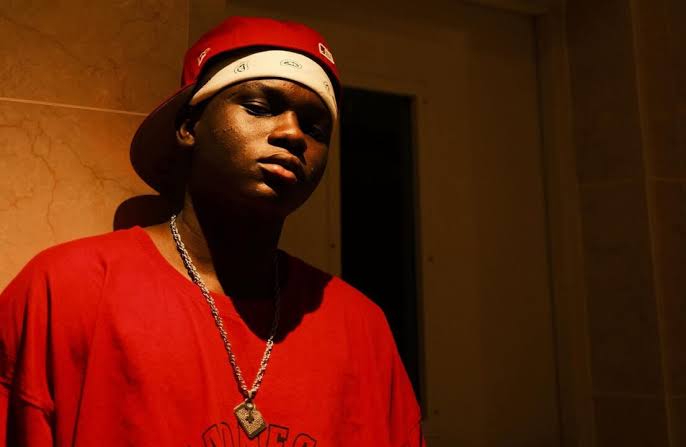At just 19, Ayorinde Ayodele—better known as Ayo Maff—isn’t just making music; he’s amplifying a movement.
With his breakout album, Prince of the Street, the Bariga-born artist delivers more than catchy beats. He unearths the emotions, endurance, and electricity of life on the gritty edges of Lagos.
Across 13 unapologetically real tracks, Ayo Maff crafts a raw, pulsating audio diary from the underbelly of Nigeria’s most vibrant city. The album’s fusion of Afrobeats, amapiano, street-hop, and highlife isn’t just musical versatility—it’s cultural fluency. And every lyric echoes his journey from teenage hustler to chart-topping voice of the youth.
From Somolu to Stardom: Built on Grit, Not Gloss
Raised in the working-class boroughs of Bariga and Somolu, Ayo Maff’s music isn’t born in privilege—it’s carved out of hardship. He left home at 16 to support his family, and that urgency bleeds through his delivery. Whether he’s chanting hope or heartbreak, his voice never sounds distant—it’s right there on the pavement beside you.
A Studio of Struggles: Music Made in Kitchens, Bedrooms, and Belief
There’s something almost mythic about Prince of the Street never touching a traditional studio. These songs were recorded in living rooms, kitchens, and borrowed corners—spaces that breathe with the realism his lyrics demand. This DIY ethic doesn’t subtract from the quality; it adds texture, honesty, and an unpolished charm.
Street Poet with a Sonic Palette
From the amapiano bounce of “Area Vibes” to the emotionally charged “Omo Ologo,” Ayo Maff doesn’t just narrate his story—he scores it. “Baddo’s Song” salutes Olamide’s legacy, yet it doesn’t rely on nostalgia. It uses the past as a springboard for the now. And this fusion of homage and originality is where Ayo thrives.
Collaborations That Uplift, Not Overshadow
With the likes of BNXN, Seyi Vibez, Chike, Jazzworx, and Thukuthela lending their voices, the album’s sonic scope expands without losing its streetwise core. These are not guest appearances—they are strategic co-creators of moments that speak to shared struggles and joint victories.
No. 1 with a Bullet—and a Heart
Hitting No. 1 on Apple Music Nigeria, the album’s success feels deeply personal. Ayo Maff’s celebratory message gave flowers to his mum, his fans (the “Maffians”), and the street roots that raised him. This isn’t just a win for him; it’s a win for every Lagos kid crafting dreams between power cuts and potholes.
Lagos, in Stereo
As writer Frederick Adjavon beautifully put it, Prince of the Street is a love letter to Lagos—messy, magnificent, and magnetic. It’s the sound of generators humming at midnight, danfo horns at dawn, and endless voices chasing visibility in an overcrowded world. It’s not polished pop—it’s street symphony.
Final Take: Not Just an Album—A Movement Begins
Prince of the Street doesn’t whisper ambition—it roars it. Ayo Maff is not here to impress; he’s here to represent. For the boy sleeping in a one-room apartment. For the girl dancing in traffic. For the dreamer too broke to afford data but too gifted to be ignored.
In Ayo Maff, the street finally has its crowned prince—and maybe its next king.
